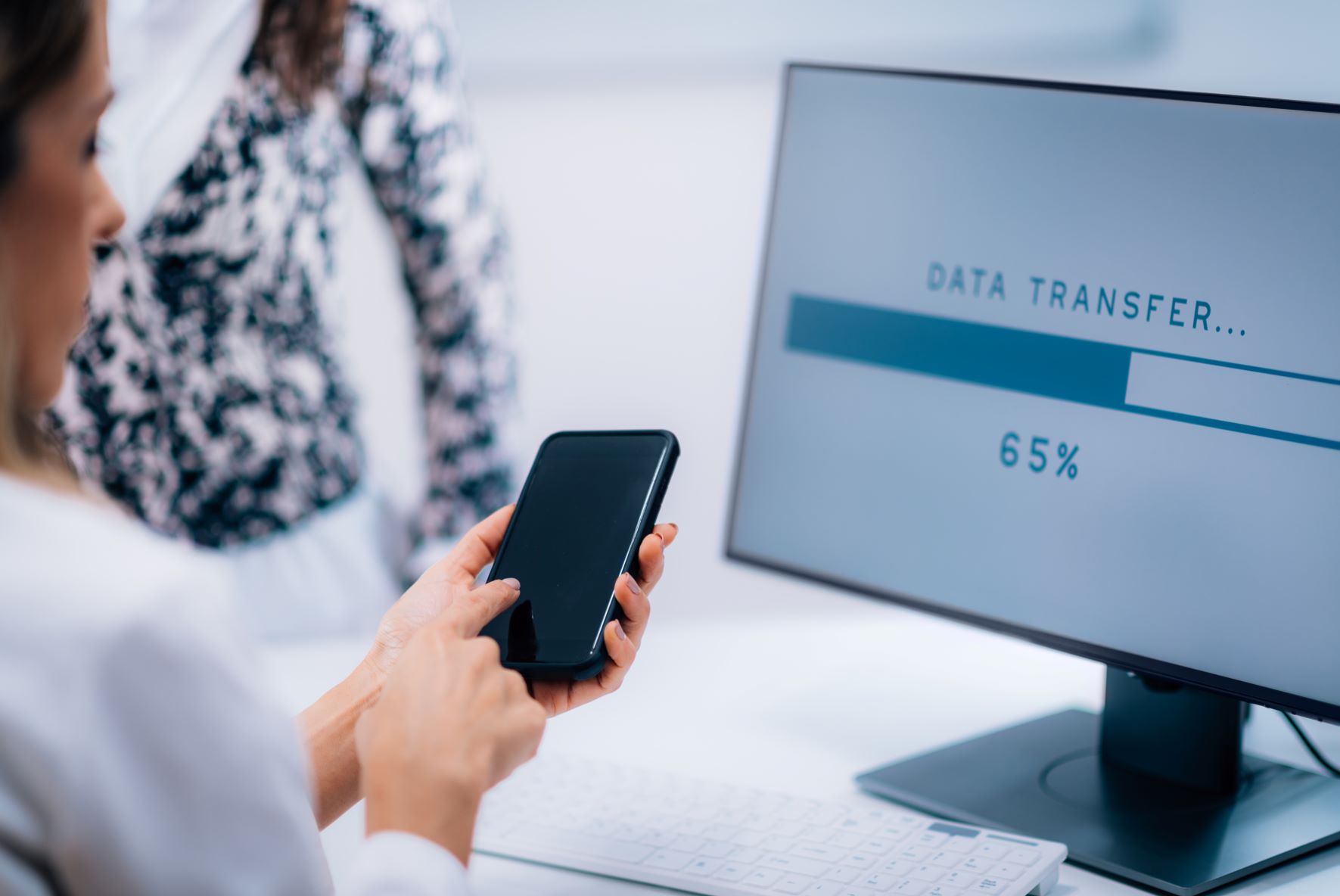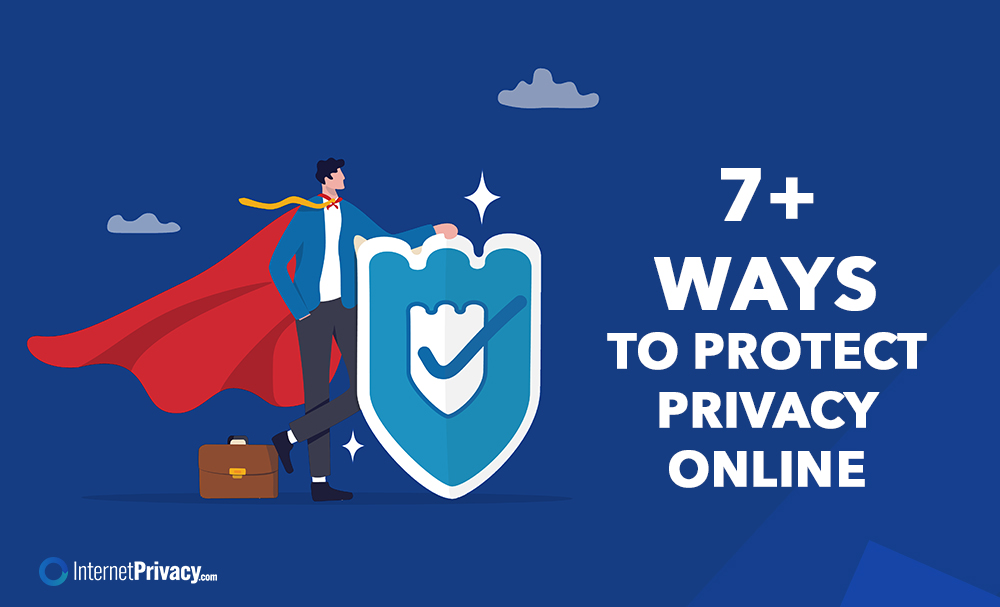Public Records Privacy: How to Protect Your Personal Privacy

Public records privacy is something anyone can afford, but not a lot of people prioritize it. If you know how important it is to protect your public record and want to find out how to protect it from falling into the wrong hands, this article is for you.
Federal government agencies naturally offer your public records on a written request basis. Although your public documents are important for certain transactions like bank loans, not everyone should have access to them.
Learn how to protect your critical information, like public documents from the Social Security Administration, from falling into just anybody’s hands. This will help protect you from identity theft and allow you to exercise the freedom of information act.
If you want to learn how to protect your public records, read further.
How People Can Gain Access To Your Public Records
Public records are important for citizens to view information about their local, state, and federal governments. The records provide information on everything from court proceedings to land ownership to birth and death records.
With the availability of technology, it is now easier than ever to access public records. The first step for being able to view public records is to contact the agency that holds them. Most government agencies have a designated website or public records office that can provide the necessary information. Some information is already available to the public, like the postal service USPS Form 3575.
When contacting the agency, it is important to provide as much information as possible to make the process easier. This may include the type of record being requested, the date of the record, and the reason for the request. Another method to view public records is to use online databases.
Some information, such as private information for a public inspection, will require a written request to be given. Information brokers, on the other hand, are often the first choice of approach for a public inspection as certain circumstances make it harder to go to get a court order to get a person’s information.
If the information is not considered public information, it will require a court order for the general public to be able to view it. Certain circumstances will require access to the social security numbers of the subject, and they could be given with the right request made.
While your Social Security numbers are not available to the general public, there is still a way for a person to get the information from a subject, even if it is not publicly available. Disclosure of the different documents that are not available to the public will need to go through the proper request steps required by law for an institution or term to obtain your record.
These databases are created by private companies and provide entry to various public records. It is important to be aware that not all records are accessible through these databases, and some may require a fee.
Additionally, these databases may not always be up to date. A visit to the local county clerk’s office is often the best option for those wishing to be able to view public records in person. Citizens can view court records, marriage licenses, birth certificates, and more here.
In some cases, a fee may be required for access. Finally, citizens can view public records via the Freedom of Information Act. This federal law gives citizens the right to view documents held by the government. The documents must be requested in writing, and the agency may charge a fee for the request.
Regardless of the method used, it is important to understand that public records are available to anyone who requests them. With the right information and resources, citizens can view the information they need to stay informed about their government.
What Are Public Records?
Public records are documents or information kept and maintained by a government agency or other organization and made available for public access. Individuals, businesses, and other organizations often use these records for various purposes, including researching an individual’s background, locating lost items, and verifying facts.
Public records are invaluable for individuals, businesses, and other organizations. These records can be used to research an individual’s background, verify facts, and assist in transferring property or credits. There are five main types of public records: court records, vital records, property records, government records, and educational records.
There are five main types of public records: court records, vital records, property records, government records, and educational records.
Court Records
Court records include case dockets, court decisions, and other documents related to a person’s legal proceedings. This type of public record is typically held at local courthouses and can be accessed by anyone with a valid reason for doing so. Court records can be used to research an individual’s legal history, verify the outcome of a trial or court proceeding, or assist in reviewing a potential business partner.
Vital Records
Vital records are documents that contain important information about an individual’s life, such as birth certificates, death certificates, marriage certificates, and adoption records. This public record is typically held at the local or state level. It can be used to verify an individual’s identity, verify the accuracy of a family tree, or research a person’s medical history.
Property Records
Property records are documents that contain information about a person’s real estate holdings. This public record is typically held at the local county assessor’s office. It can be used to research an individual’s land holdings, verify the ownership of a property, or assist in the transfer of a property.
Government Records
Government records are documents that contain information about a particular government agency or department. This public record is typically held at the local, state, or federal level. It can be used to research a particular government program, verify the accuracy of a law or regulation, or assist in reviewing a potential business partner.
Educational Records
Educational records are documents that contain information about an individual’s academic history. These records are typically held at the local school or college. They can be used to research an individual’s academic background, verify the accuracy of a degree or certification, or assist in transferring credits.
Why You Should Protect Your Public Records
Protecting your public records privacy is important in maintaining your security, identity, and peace of mind. With the increasing amount of sensitive information shared online, it’s essential to know the risks associated with sharing data and how to protect yourself.
Here are ten reasons to take steps to protect your personal privacy.
- Guarding Your Identity: Your personal information can be used to create a false identity, allowing someone else to take advantage of your financial and other resources.
- Protecting Your Finances: If your financial information is obtained, it can be used to make unauthorized purchases, open accounts, and even commit fraud.
- Preventing Unwanted Communications: Unsolicited emails, texts, and phone calls can be intrusive and annoying.
- Maintaining Your Reputation: What you post online can impact your reputation and how others perceive you.
- Preventing Data Breaches: Data breaches can lead to the theft of your personal information, and any data stolen can be used to exploit you.
- Staying Safe From Cybercriminals: Cybercriminals are constantly looking for ways to exploit vulnerabilities and people online.
- Preventing Online Harassment: Women, in particular, are vulnerable to online harassment. Protecting your personal information can help reduce your risk of becoming a target.
- Safeguarding Your Relationships: You wouldn’t want someone to be able to view private conversations or emails you have with your family and friends.
- Staying Anonymous: In some cases, it’s important to remain anonymous to protect yourself from people who want to harm you.
- Protecting Your Privacy Rights: It’s important to stand up for your right to privacy and take steps to protect yourself from those who would use your data without your permission.
- Opt Out of Data Broker Sites: Data brokers collect and share your personal data, often without your knowledge. By opting out, you are taking steps toward personal information protection.
Protecting your personal privacy can reduce the risk of becoming a victim of identity theft, cybercrime, online harassment, and more. The more proactive you are in protecting your data, the less vulnerable you will be.
Top 10 Ways To Protect Your Personal Privacy
We live in an increasingly digital world, and with the rise of technology comes the potential for our personal information to fall into the wrong hands. Protecting our personal privacy is more important now than ever before.
Here are some tips to help you keep your personal data secure.
- Keep Your Passwords Unique and Secure: It’s important to choose strong passwords that are unique and not easily guessed. Changing them regularly is also a good idea.
- Be Careful What You Post Online: Be aware of the information you share on social media and other online platforms. Remember, once something is posted, it’s out there for good and can be seen by anyone.
- Use a VPN: One of the best ways to keep your data safe is to use a Virtual Private Network (VPN). A VPN will encrypt your data and hide your IP address, making it much harder for hackers to view your information.
- Use Two-Factor Authentication: Two-factor authentication (2FA) is an additional layer of security requiring you to enter a code sent to your phone or email and your password. This makes it much harder for someone to be able to view your accounts.
- Use Secure Browsers: It’s a good idea to use a secure web browser such as Google Chrome or Mozilla Firefox whenever possible. These browsers have additional security features to help protect your data.
- Be Careful About What You Download: Be sure only to download information from trusted sources. Unverified downloads can contain malicious software that can compromise your data.
- Be Wary of Public Wi-Fi: Public Wi-Fi networks are not secure and can be easily accessed by hackers. If possible, try to only connect to networks that require a password.
- Don’t Click on Links in Suspicious Emails: Be wary of emails containing links or asking for personal information. These could be phishing attempts and should be avoided.
- Use Encryption: Software such as TrueCrypt can help encrypt your data, making it much harder for anyone to access.
- Monitor Your Credit: It’s also a good idea to monitor your credit report regularly. This can help you spot any suspicious activity and take steps to protect your identity.
Following these tips can help ensure your personal information is secure.
What Is The Privacy Act?
The Privacy Act is a law that regulates the collection, use, and disclosure of personal information by the federal government. It requires federal agencies to protect individuals’ personal information and provide individuals with certain rights and protections when their information is collected and used.
The Privacy Act was passed in 1974 in response to the federal government’s increasing power over personal data. It established how the government must collect, use, store, and protect personal information. It also granted individuals the right to be able the personal information that the government holds.
The Privacy Act applies to all government departments, agencies, and offices. It also applies to contractors and other organizations that handle personal information on behalf of the federal government. Under the Privacy Act, federal agencies must take certain steps to protect individuals’ personal information.
This includes limiting information collection to what is necessary for a specific purpose, securely storing it, and only using it for the purpose it was collected. The Privacy Act also requires federal agencies to provide individuals with certain rights and protections. These include the right to access their personal information, request corrections to their records, and be informed of the purpose for which the information is being collected.
Finally, the Privacy Act establishes an enforcement mechanism to ensure that federal agencies comply with its requirements. The Office of the Privacy Commissioner of Canada oversees compliance with the Privacy Act and ensures that the government respects individuals’ public records privacy rights.
The Privacy Act is an important law that helps ensure that the federal government respects individuals’ privacy rights. It helps protect individuals from misusing their personal information and ensures they have the right to access and correct their personal information.
Sensitive Records That Can Be Illegal To Obtain
With the rise of technology and access to personal information, it is important to know the types of illegal information to obtain about a person’s personal records. It is not only illegal to obtain such information, but it is also unethical.
Here are the five types of illegal information to obtain about a person’s personal records.
Financial Information
Financial information is highly sensitive and cannot be accessed without the person’s permission. This includes credit reports, bank accounts, and tax records. It is illegal to access this information without the person’s express consent, and doing so can result in serious legal repercussions.
Medical Records
Medical records are private and confidential. It is illegal to access or view medical records without the person’s express permission. This includes medical history, diagnosis, and treatments. Any attempt to access medical records without the person’s permission can result in serious legal repercussions.
Social Security Number
A Social Security number is a unique identifier assigned to each person. It is illegal to obtain a person’s Social Security number without their express consent. Doing so can result in serious legal repercussions.
Criminal Records
Criminal records contain sensitive information about a person’s criminal history. Accessing or viewing a person’s criminal records without permission is illegal. Doing so can result in serious legal repercussions.
Social Media Records
Social media records contain personal information about a person’s activities on social media platforms. Accessing or viewing a person’s social media records without permission is illegal. Doing so can result in serious legal repercussions.
In conclusion, it is important to know the types of illegal information to obtain about a person’s personal records. Any attempt to access such information without the person’s consent can result in serious legal repercussions.
It is important always to respect a person’s right to privacy and to obtain any information ethically and legally.
Contact Internet Privacy Today
With so many public records websites online, it’s crucial to protect your public records privacy. Learn how to protect your info and maintain privacy from public record sites.
Our professionals know not just how to scour the web but to ensure that your private information does not fall into the wrong hands. If you want to opt out of data brokers and need assistance at affordable pricing, contact us today at 866-349-0130 for a free online analysis.





